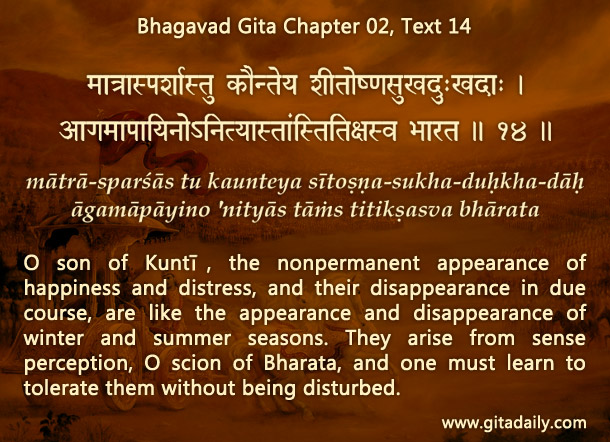Some people ask, “Does tolerance, as recommended in the Bhagavad-gita, mean that I just passively accept everything, even injustice?”
No, tolerance is not at all about passivity, as is evident from the Gita’s overall context. Though the Gita (02.14) urges Arjuna to tolerate life’s dualities such as heat-cold and pleasure-pain, that very Gita also asks Arjuna to fight for countering the Kauravas’ atrocities. Clearly, it doesn’t equate tolerance with passivity.
The Gita’s overall message centers on spiritual activism. Within such activism, tolerance is the maturity to calmly decide which of life’s battles to fight and which to pass. Some battles may be too big to fight. For example, if torrential rains disrupt our plans, waving our fist against the weather gods achieves nothing.
Similarly, the Gita explains to Arjuna that trying to save the lives of his relatives, who were fighting against him, was a futile battle. Why? Because the destruction of their body was an inevitability that wouldn’t be averted even if he abandoned his martial duty. By tolerating the distress inherent to his duty, he could free their eternal souls from their present situations, which had constrained them to fight on the side of evil.
When we complement tolerance with spiritual wisdom, we gain the maturity to avoid resenting or ranting. Instead, we calmly deliberate and decide how to do the best in whatever situation we find ourselves.
Tolerance can empower us amidst not just battles too big to fight but also battles too small to fight. If someone cuts across our car when we are driving, we could get carried away with revenge fantasies. Or we could decide that we have better things to do, tolerantly neglect that person and move on.
Thus, tolerance is the polar opposite of passivity – it is the mature disposition foundational for maximizing our productivity.

To know more about this verse, please click on the image
Explanation of article:
Podcast:


tolerance is the highest virtueof of stoic